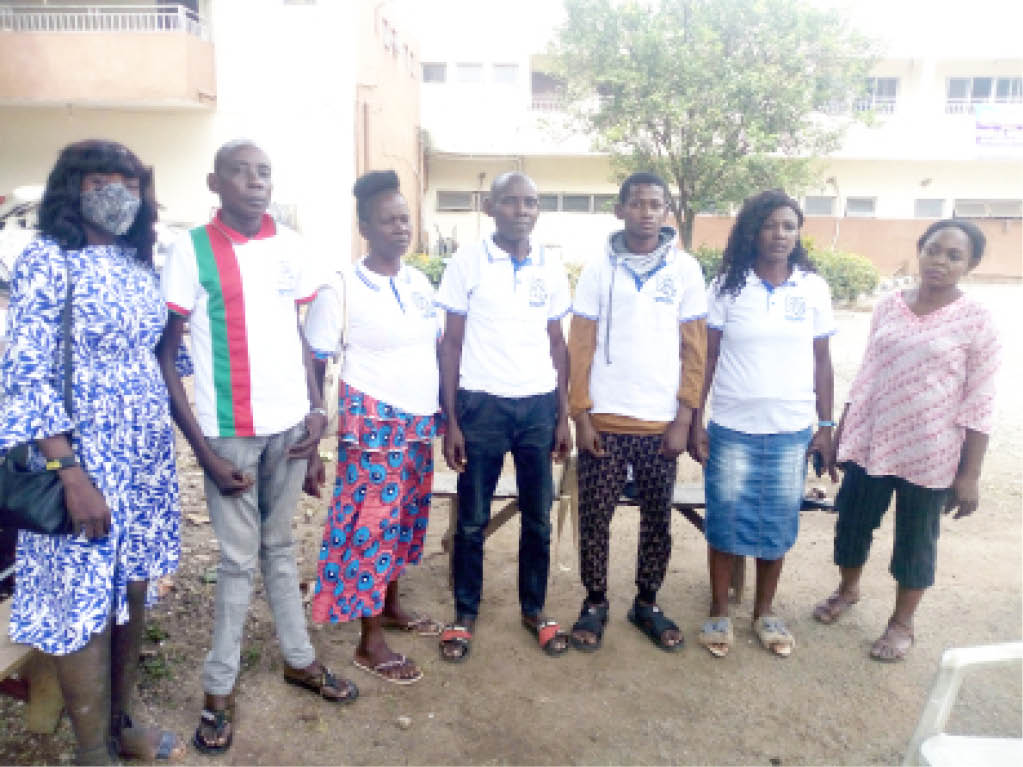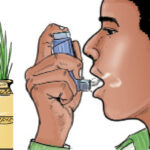On a daily basis, sickle cell patients go through excruciating pains and agony. In this report by Daily Trust, some of them share their harrowing experiences as they appeal to the government to subsidise the treatment for sickle cell.
Despite his condition, Mr Imosimi Blessing, a 50-year-old father of three and sickle cell patients from Edo State, engages in menial jobs to be able to feed his family.
- 10 pirates jailed for 12 years for hijacking Chinese vessel
- D’Tigers seek revenge against Australia in Tokyo Olympics opener
According to him, the experience is very painful, stressful, frustrating and debilitating as sufferers are constantly in pain because there is no cure for the condition yet.
Other sufferers who also shared their ordeal with Daily Trust Saturday said they were always emotionally and psychologically down due to the pains they go through whenever they were in crisis.
What worries the sufferers is the near absence of treatment at the sickle cell centre in Edo State, which, according to them, only has one doctor, and the services are not for 24 hours.
Imosimi, who was diagnosed with sickle cell disorder at the age of 10, said life had not been easy for him due to the excruciating pains he always suffered.
“When crisis comes to you as a sufferer, you must spend all the money with you to suppress the pain,” he said.
He said some parents who are not really aware of the sickness would think they were being punished by the devil.
“Some parents have abandoned their children in the hospital, especially those who borrowed money for previous treatments and had not finished paying before another crisis.
“I am 50 plus and married with three kids, but they are not sufferers,” he added.
The graduate of Business Administration from the Federal Polytechnic, Auchi, lamented that most organisations usually relieved them of employment due to constant crisis,
“After the National Youth Service Corps (NYSC) scheme, I went to Lagos and was doing a part-time job, but because of continuous crisis I had to relocate to Benin, where I would have people to take care of me when in crisis.”
“As a family man, there are times your helpers would be fed up with you and you have to carry your cross. So, even in crisis, I still go out to do some menial jobs to be able to feed my family.
“The problems we are facing as sufferers are enormous. And the moment most employers know that you are a sufferer, they will do away with you.
“For now, I am jobless, but at times, even with my health condition, I go to construction sites to work as a helper. I also join my uncle’s bus as a conductor, just to get money. My wife is a petty trader and she is very helpful.
“Our major challenge is access to treatment at the sickle cell centre, which doesn’t operate for 24 hours.
“Sickle cell crisis mostly happens at night, between 12 and 1 am when one has no access to medical facilities, so he or she takes to any available drug. And this has forced many people into drug addiction.
“Once the pains come, a sufferer can take any available drug because the concern at that moment is for the pains to go away; and in that process, most of us end up injuring ourselves.
“When in crisis, most sufferers need a blood transfusion and other drugs, and if the centre runs a 24-hour service, it would reduce the death of patients,” he further said.
He appealed to the state government to look into the centre and make it operational for 24 hours.
On her part, Tessy Amadasu, a 35-year-old sufferer, said she was only alive because of God.
Amadasu, who barely walks due to leg problem, said the life of a sickle cell sufferer is full of pains, anguish, stress and hardship.
“I have a problem with my legs, so I can’t walk properly. I need surgery to be able to walk perfectly, but I don’t have money for the operation.
“My mother is late and my father is old and can’t take care of me. I am just managing myself. I have a business where I get little money to take care of myself, but our drugs are very expensive,” she said.
Another sufferer, Momodu Mubarak, a 22-year-old 200-level student of the Department of Agriculture, University of Benin, told Daily Trust Saturday that he was diagnosed with the ailment at the age of seven.
According to him, coping with it has been tough. “Crisis in sickle cell sufferers is the worst aspect of the disorder. Once it starts, you have to do anything to make the pains go away. Only sufferers know the pains they are passing through.
“I used to blame my parents for the condition, but as time went on, I understood that it was not their making and that the earlier I prepared to live with it, the better for me,” he said.
He said the disorder had affected his performance in school, adding that because some people stigmatise those with sickle cell disorder, he hardly discloses his status.
“A majority of my fellow students are not aware that I am a sufferer.”
“The problem we have is that sickle cell drugs are very costly and beyond the reach of the ordinary person. We are appealing to the state government to come to our aid by subsidising the drugs,” he said.
On his part, Charles Edigin noted that stigmatisation of sickle cell sufferers is very high due to ignorance.
Edigin, who is the president of the Edicharles Foundation for Sickle Cell, said he had long overcome the development.
“I am 51 years; and for attaining this age as a sufferer, I can’t say that life has not been good to me,” he said.
Edigin, a holder of a diploma in Public Administration from the University of Lagos, said the bone crisis associated with the disorder was indescribable and only the sufferer knows what he or she is passing through.
“It is God that has kept me till this day. As I was growing up, my mother was very wealthy and was doing everything for me until she died when I was 20 years old.
“I was diagnosed when I was three months old after my twin brother died. When my mother died, my father took over till he also died when I was 32 years,” he also said.
Edigin, who got married at the age of 27, said his wife and siblings had been very helpful, noting that his five children are not sufferers.
He said stigmatisation could be very frustrating, but he developed a thick skin to absolve it.
“In the community, children and co-landlords do say all sorts of things about me, but that has never deterred me.
“People refer to us as never-do-wells who were sent to ruin our families. They also refer to us as psychiatrist patients. This affects the psychological and emotional attitudes of sufferers,” he added.
According to him, getting treatment is a herculean task, except for those who have money to go to private hospitals.
“The sickle cell centre in Edo State is a mere consulting hospital because we only have one doctor there.
“The governor renovated the centre and equipped both the male and female wards, but only one doctor is managing the hospital. And it doesn’t have an ambulance,” he also said.
He lamented that sickle cell sufferers are not given the same attention as those of HIV/AIDS, tuberculosis and other ailments that attract huge budgets.
He called on the state government to intervene by making the centre functional for 24 hours, with additional medical doctors.
Caregivers who spoke with Daily Trust Saturday also shared their experiences.
Mrs Ogieva, a mother of one of the sufferers, Osase Ogieva, 20, said taking care of sickle cell patients is quite hectic as the condition takes happiness away from one.
“In the last one week, I have been coming to this centre with my daughter. Because the centre is not offering 24-hour services we go home in the evening and come back the following day to continue treatment.
“I have spent all my money. I was told that her pelvic borne had shifted from its location. We went to the University of Benin Teaching Hospital (UBTH) and they said I should bring N2million for the treatment. Where will I get such money? That is why I am coming here,” she lamented.
She said her daughter was diagnosed of sickle cell disorder when she was a year-old, adding, “Since then, I have been suffering with her because as a mother you can’t watch your child in pains. I don’t sleep once she is in crisis.”
On her part, Mrs Osaretin, a widow said her daughter was diagnosed at the age of seven, added, “Since then I have been suffering with her and have exhausted all my money, without success.
“When she is in crisis we don’t sleep, and we can’t take her to the hospital because there’s no night service there. The drugs are very costly, and there’s hardly any crisis that would not take blood transfusion.
“I am a widow and two of my children are sufferers. When they have a crisis they can’t go to school and I can’t even go to the market to find daily bread. I have borrowed and keep borrowing to treat them.”
She appealed to both the federal and state governments to subsidise sickle cell drugs so that sufferers can get them at cheaper rates.

 Join Daily Trust WhatsApp Community For Quick Access To News and Happenings Around You.
Join Daily Trust WhatsApp Community For Quick Access To News and Happenings Around You.


